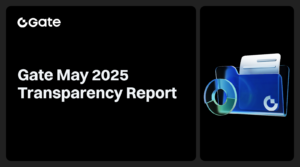Blockchain technology can potentially revolutionize many industries, from finance to supply chain management. However, as with any new technology, there are ethical implications that must be considered. In this article, we will examine the ethical issues surrounding blockchain technology, with a focus on privacy, governance, and control.
What is Blockchain Technology?
Before diving into blockchain technology’s ethical implications, it’s important first to understand what it is. At its most basic level, a blockchain is a digital ledger of transactions that are stored on a decentralized network of computers. Each block in the chain contains a cryptographic hash of the previous block, creating a secure and tamper-proof record of all transactions on the network.
Blockchain technology has gained popularity in recent years because it provides a level of security and transparency that traditional centralized systems do not. Transactions on a blockchain are verified and validated by a network of nodes rather than a central authority, making it more difficult for bad actors to manipulate or corrupt the system.
Privacy Implications of Blockchain Technology
One of the main ethical implications of blockchain technology is its impact on privacy. While the technology provides a high level of security and transparency, it also makes it more difficult to maintain anonymity when conducting transactions.
Because blockchain transactions are stored on a public ledger that is accessible to anyone on the network, it is possible for someone to trace a transaction back to its origin. While this level of transparency can be beneficial in certain industries, such as finance, it can also be a cause for concern in others, such as healthcare.
For example, if medical records were stored on a blockchain, it would be possible for anyone on the network to access and view a patient’s medical history. While this level of transparency could be helpful for healthcare providers, it could also be a violation of the patient’s privacy.
Governance Implications of Blockchain Technology
Another ethical issue surrounding blockchain technology is the question of governance. Because the technology is decentralized and operates without a central authority, it can be difficult to determine who oversees the network and ensures that it operates fairly and ethically.
In some cases, blockchain networks are governed by a group of stakeholders who work together to make decisions about the network’s operations. However, in other cases, there may be no formal governance structure in place, leaving the network vulnerable to manipulation and abuse.
For example, if a blockchain network were used to conduct elections, there would need to be a governance structure in place to ensure that the process is fair and transparent. Without proper governance, there could be the potential for bad actors to manipulate the results of the election.
Control Implications of Blockchain Technology
Finally, the use of blockchain technology raises questions about control. While the technology provides a high level of security and transparency, it also puts control of the network in the hands of a select group of individuals or organizations.
In some cases, this may be beneficial, as it allows for faster decision-making and more efficient operations. However, in other cases, it may be a cause for concern, as it could lead to the concentration of power in the hands of a few.
For example, if a blockchain network were used to conduct financial transactions, the individuals or organizations that control the network would have a significant amount of power over the financial system. This could lead to the potential for abuse, as those with control could manipulate the system to their advantage.
Conclusion
Blockchain technology can potentially revolutionize many industries, but it also raises important ethical implications that must be considered. As we have seen, issues of privacy, governance, and control are all significant concerns when it comes to using blockchain technology.
As the technology continues to evolve, it will be important for stakeholders to work together to address these ethical issues and ensure that blockchain technology is used in an ethical and responsible manner. It will be important for stakeholders to engage in ongoing discussions and debate around these issues. This includes developers, policymakers, and users of blockchain technology, as well as members of the broader community.
By working together to address these ethical concerns, we can help to ensure that blockchain technology is used in a way that promotes transparency, fairness, and accountability while also protecting the rights and privacy of individuals. Ultimately, the success of blockchain technology will depend on our ability to navigate these ethical issues and build a system that is both secure and ethical.






